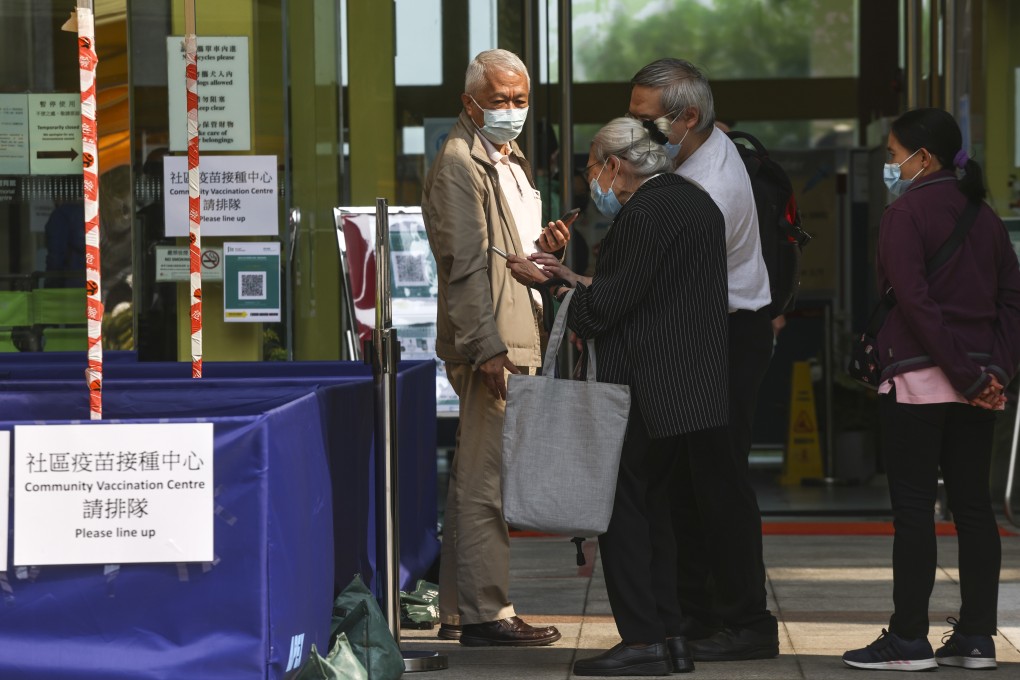Advertisement
Walk-ins welcome: Hong Kong to begin offering Covid-19 jabs to the elderly without appointment
- The move, which will see 200 passes a day distributed at vaccination centres, is intended to boost flagging take-up among the city’s older residents
- Hong Kong confirms two imported coronavirus cases on Saturday, while authorities reveal 13-year-old recently arrived from Saudi Arabia is critically ill
Reading Time:3 minutes
Why you can trust SCMP
4

Hong Kong health authorities will as early as next week begin handing out 200 passes a day at the city’s Covid-19 vaccination centres allowing walk-ins by residents aged 70 and above to boost a flagging take-up rate among the elderly, the civil service minister has said.
The move, revealed by Patrick Nip Tak-kuen, came as the city confirmed two imported – and zero local – cases on Saturday, taking the city’s tally to 11,975 infections and 212 related deaths
The two cases were arrivals from the United Arab Emirates and United States, with the latter individual having received two jabs of the BioNTech vaccine in Hong Kong in April and May.
Separately, the Hospital Authority announced that the 13-year-old daughter of a Saudi Arabian consulate worker whose family had their quarantine exemption revoked this week for breaking home-isolation rules had fallen critically ill.
The teen, infected with the more transmissible L452R coronavirus strain, is the only one of the city’s 32 Covid-19 patients in hospital to be classified in that state.
On Friday, the city logged its highest number of vaccine shots administered in a single day, at 70,570.
Advertisement